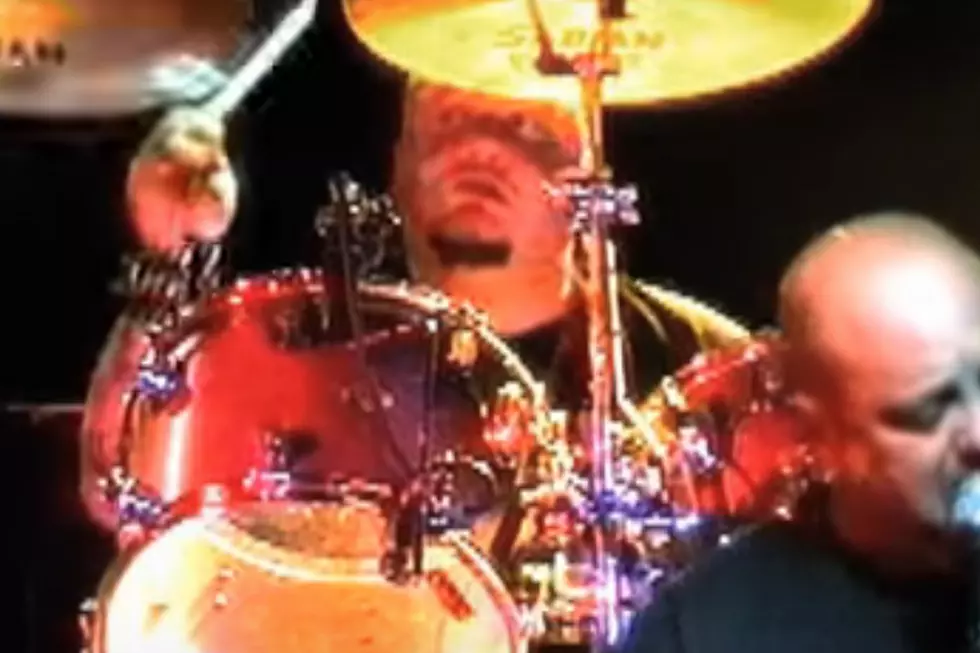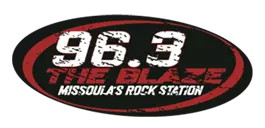
Machine Head’s Robb Flynn: ‘You Can’t Have a Plan’ When Starting in the Music Business
Machine Head's Robb Flynn was the latest guest on Full Metal Jackie's weekend radio program. He spoke about the band's new album, Catharsis, and the new sonic elements it has brought to the Machine Head catalog. The frontman went on to explain how they switched up the recording process with this record; he also discussed his General Journals, the challenges of doing "An Evening With" styled tours as well as helping out his ailing Vio-Lence bandmate Sean Killian. Check out the chat below.
How are you?
Hello.
It's been a while, happy to finally say we're able to talk about this new album Catharsis. You've described the album as very melodic, very groove oriented — not fast. What influenced your creativity into this particular direction?
Ah, you know what, nothing. When we start writing a record, there's no plan. You know what I mean? We're just writing and I think that that's kind of the beauty of music is that you just - you take that first step and suddenly you're on a journey and you don't know where that journey is going to end, but somewhere it's going to end. And, with this one just whenever we wrote thrashy stuff, it was just kind of, "eh." And then the grooving melodic stuff was just really strong, so we rolled with it. I've been telling our fans and the Headcases, much to their chagrin, like, lower your expectations for the heaviness. It's probably the least thrashy we've been in a while.
What gets easier about making an album when you have that much experience and what gets harder?
You know what, I'll tell you, the last couple records we did were really long, super intensive in the studio, and after about two weeks I'm kind of done. My brain just kind of shuts down - I can't concentrate. I was just letting everybody know that we need to mix it up. Let's do this differently. So what we did was we'd write three songs and then we'd go and record those songs really fast. Like, not even finish them, just get as much done as we could and then get out of the studio. And then we'd write three more songs, you know, take a month or two, go and record them really fast.
The thing that was awesome about doing it that was was that everything was always really fresh. Sometimes we barely even knew how to play the song. I mean there were a couple of songs that when we were in the studio, you're literally hearing the second time we've ever played the song as a band. And it just had this fire and it had this magic and it had this urgency and this excitement to it that - I don't know if it would have been there if we had recorded it the traditional way of writing for, whatever, six to 10 months, and then recording for a long time. It did something different and I think you really feel that on the record.
You're pretty bold about sharing your opinions about political and sociological issues throughout your General Journals blog, even more so over the last year or so. How much of what motivated your blog post went on to become lyrics?
For me, the General Journals is just a creative outlet. I sit down at the computer and I just start writing. And often times the first two paragraphs or so that I write is crap that I throw away and then eventually I kind of get into a groove and I just kind of write what I write. To me, lyrics are the same way. You know, when I wake up - when I'm writing a record I wake up every morning at 4:30 and I sit there and I start writing lyrics. I drink coffee. My kids are in bed. My wife's asleep. It's peaceful in the house. And it's just a good time to focus. And, you know, most of the time when I'm writing it's just poetry and kind of random crap and 80 percent of its garbage and 20 percent of its gold. And then I take that and apply it to the songs.
And you had said earlier that sometimes you'll write a blogpost and then you walk away and some of it gets thrown away. Is some of that stuff that you throw away really mean, and you're afraid of posting it?
Oh, I would say probably one in 10 General Journals just never even sees the light of day.
I think that's an actually a really good thing because I've learned that skill when it comes to emails. Sometimes the immediate email you want to send to someone is really awful.
We even have a name for that in Machine Head, we call it the first draft. Is this third draft? Okay, well then, because if it's not the third draft, I don't even want to read it.
Yeah, if you walk away from that email for 30 minutes and even 20 minutes, take a breath. Then you come back and still want to send it? Great. By 9 out of 10 times...
The raging mad email almost never works anyway. They actually say that communication is the best face to face, second best over the phone and actually worst by just text or email.
Oh yeah, you can't read anyone's tone.
Like six percent of all human language is just written a word and I don’t know what it is, some crazy percentage is a just facial expression and body language.
Making music when you're a kid is a totally idealistic thing. It's difference once it becomes your livelihood. What is the trick to making creativity coincide with business?
Bringing art and commerce together, it's a tricky thing. I think that you've got to look at it in a very - in kind of a weird way. You can't have a plan and I've never had a plan B. When I started doing music I had every intention of just playing music for the rest of my life. I just wanted to play music and I just couldn't see anything else doing it. I started doing it pretty young. I was in bands when I was 16, I was on tour when I was 19 years old. You just keep on doing it. You do it because you love music, you do it because it fills things. I read a Michael Jordan quote one time that I feel totally applies. "You don't have to love the NBA, you just have to love playing basketball." You don't have to love the music business, you just have to love making music. That's, to me, what it's about.
Machine Head has tours as "an evening with" format, meaning no opening bands. What was the biggest adjustment when you started playing shows like that?
The biggest adjustment was that up until then we had been doing a lot of support slots. We had been doing a little bit of headlining packages, festivals, 30-45-50 minute slots. So we'd do 9 or 10 shows in a row, it wouldn't be unusual to do that because it'd be a pretty short slot. So, then for some idiotic reason we thought that that same theory would apply when we're doing "an evening with" for two-and-a-half to three hours and I think we found out that my body was, "No dude this isn't happening." There were a few moments on the very first evening with run where we were going to pull the show. We actually canceled the Las Vegas show and then after meeting a bunch a fans that had flown out from Boston - I just had this unbelievable guilt so I was like, alright we're gonna do this show and I'm gonna try and push through but I did nine shows in a row two-and-a-half to three hours each. Then a day off, then five in a row. So 14 shows in 15 days in an evening with two-and-a-half to three hours every night and I was like - I can't ever do this again. We made it through and it was fine. But it was fucking brutal. So that was the biggest adjustment. Like, ok - I can do a on/off kind of schedule for a while for the start just to break my muscles in my throat, get the throat callous back in. Once I'm in a groove, two weeks into the thing I can do 3-4 shows in a row, then we just keep it at that.
You've been selling this specially designed t shirt to benefit Shaun Killian, your Vio-Lence bandmate who has been diagnosed with liver cirrhosis. What's unique about the metal community in terms when someone needs help?
I mean, definitely - especially the Vio-Lence guys pulling together. It was pretty shocking. It was really shocking to us. You try and do what you can, especially this is a guy - I lived in a van with this guy for a good year probably of my life, combined. We did five tours and they were all van tours. It was just shocking to hear that. He's four years older than me, so in another way it shook you a little bit. Like, "Can this happen to me?" It's just genes and I feel like he's doing okay, but it was rough seeing him, man. It was really rough seeing him, he's lost - he looks deathly ill. It kind of brings you back to your own humanity. I raised about $6,000 on his GoFundMe. I did the shirt, Phil did a whole golf tournament to raise money. We raised quite a bit of money for him. He's going to be pulling through, he's got some good health insurance, so he's - we are hoping for the best.
Thanks to Robb Flynn for the interview. Grab your copy of 'Catharsis' here and follow Machine Head on Facebook to stay up to date with everything the band is doing. Find out where you can hear Full Metal Jackie’s weekend show at this location.
See Machine Head in the Top 100 Hard Rock + Metal Albums of the 21st Century
Robb Flynn: How Donald Trump + Charlottesville Influenced Catharsis
More From 96.3 The Blaze






